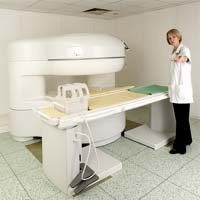FDG/PET Best for Mesothelioma Diagnosis and Prognosis
When it comes to diagnosing mesothelioma and predicting patient prognosis, Positron Emission Tomography (PET) using a radioactive tracer may be the most effective imaging modality. That’s the finding of a new study out of Japan. Mesothelioma is a fast-growing cancer that starts on the mesothelial membranes which line the chest cavity or wrap around the lungs and heart. It is caused by past exposure to asbestos, most often in an industrial setting. The greater the level of exposure, the greater the likelihood that mesothelioma will occur. Because it is highly resistant to conventional treatments, early diagnosis is critical. Unfortunately, mesothelioma can also be challenging to diagnose. If patient history and symptoms suggest mesothelioma, imaging modalities like computed tomography (CT) and X-rays can…









